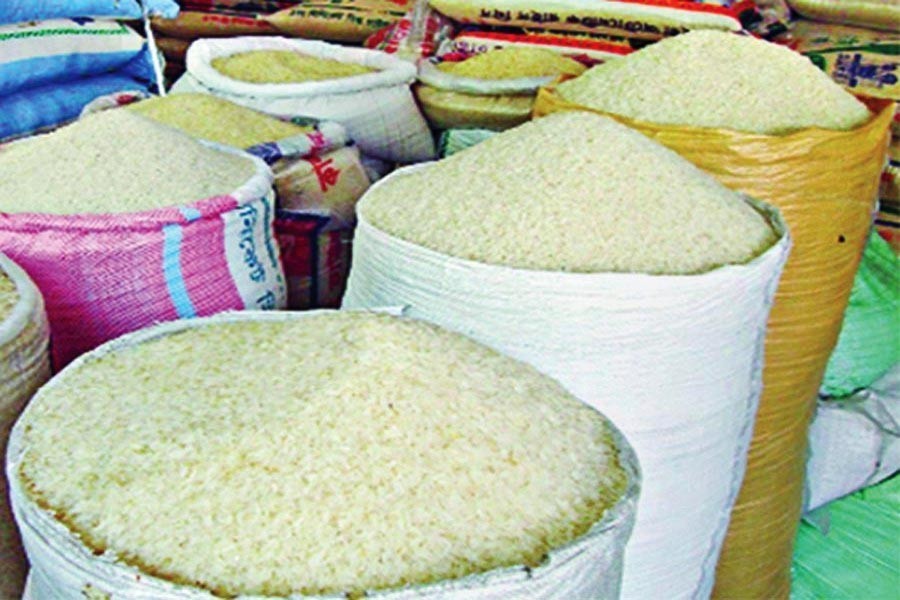
Published :
Updated :

What is the basic responsibility of the Bangladesh Police? The answer is simple. The agency with its network reaching up to the grassroots level ensures the safety and security of the citizens.
Criticisms notwithstanding, its major focus has been on law and order. Until now, the police in Bangladesh have never gone beyond their charter of duties and responsibilities. They have not prepared a report on the pandemic and advised the health ministry on measures to contain the coronavirus infection and death. Nor have they told the road transport ministry what it should do to fix the problematic roads and bridges.
But, according to a report published in The Financial Express last Saturday, the Bangladesh Police have recently stepped beyond the dotted line to make the ministries of commerce, agriculture and food aware of the prevailing food situation in the country and some other relevant issues. Of course, they have sent copies of a report to these ministries through its controlling ministry, the Ministry of Home Affairs.
Whether the police have crossed any threshold by making a review of the food situation may be a matter of opinion, but the fact remains that the country's food situation deserves serious attention from the ministries of agriculture and food and relevant others.
The rice prices have been volatile in recent months for no tangible reasons. Even a good harvest of major rice crops did not affect the price situation. Edible oils have been making headlines since the rise in prices of the item has been too sharp. The increase has been mainly due to volatile international prices of the item.
But the situation is altogether different with rice prices. Its international prices have been on the lower side for quite some time. India is reportedly offering rice at prices as low as $340 for a tonne of parboiled rice. Pakistani rice exporters have asked their government to take up the issue with the World Trade Organisation (WTO) as India, according to them, was dumping rice at subsidised prices in the international market.
When domestic production of rice has been satisfactory and the international prices are favourable, why should the prices of the item be unreasonably high in the local market? This question has been agitating the minds of many.
The depleting government food reserve was blamed partially for the volatility in rice prices. But the reserve has improved substantially of late, yet the price situation has deteriorated further.
The government has allowed the import of rice at a reduced level of duty. In December last year, the government slashed the duty on rice from 62.5 per cent to 25 per cent. Instead of allowing blanket private import, it had introduced a sort of permit system. The Ministry of Food has scrapped several permits because of the failure of their holders to import rice on time.
Yet, compared to the previous fiscal when the import of rice was negligible, the total import of rice until June 23 of the outgoing fiscal was nearly 1.3 million tonnes. Of the quantity, the government brought in a little over 500,000 tonnes and the private importers about 800,000 tonnes. They did most imports from neighbouring India, which is a traditional source of rice import.
The export price of rice has been low in India in recent months. The export price of IR 64 parboiled (5% broken) rice is now between Tk 26 and Tk 29 a kg. Considering duty at 25 per cent and cost of transportation, the price of a kg of imported coarse variety of rice should not be more Tk 35 in Bangladesh market. But the same is being sold between Tk 48 and Tk 50 a kg. Even the prices of fine varieties of rice imported from India are unreasonably high. The millers and importers have joined hands to make an undue profit.
The government procurement price, set at a higher level during the ongoing Boro season, could be one reason for the traders taking advantage of the situation.
No denying that fixing the procurement price of rice has been a problem for the government. The production cost at the growers' level has gone up, but the market price of paddy at the harvesting time is found to be lower than the normal time. The millers through their agents manipulate the market to buy paddy at low prices from farmers and sell the same to the government after processing at higher prices.
Lately, the government has started buying paddy in large volume from farmers directly. Because of the government's presence in the paddy market, the millers and their agents are finding it difficult to deprive farmers of a fair price.
The cost involved in the production and post-harvest processing of rice has been going up unabatedly. The higher cost of production and the manipulation by the millers and relevant others are responsible for the volatility of the rice market. The Ministry of Agriculture should make a proper review of the cost of production at the growers' level and take measures to help lower it. The Ministry of Food must take measures to rein in manipulation and hoarding by a section of millers and traders.
The current level of rice prices may not be a problem for the affluent section of people, but it is hurting the poor and low-income people, particularly on account of income erosion during the Covid-time.


 For all latest news, follow The Financial Express Google News channel.
For all latest news, follow The Financial Express Google News channel.